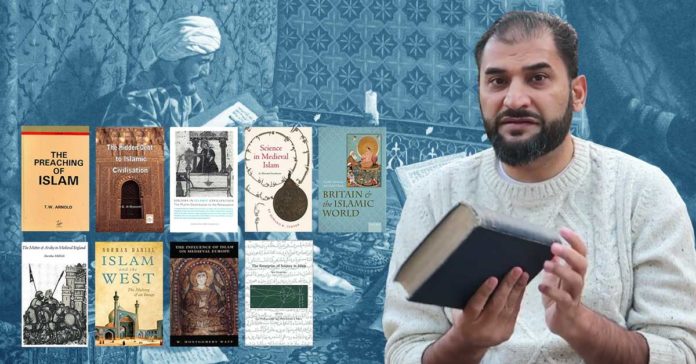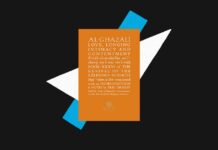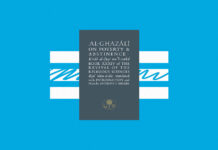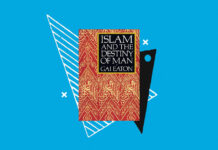This list of books on Islamic civilization has been recommended by Adnan Rashid.
- The Preaching of Islam by Thomas Walker Arnold
The Preaching of Islam: A History of the Propagation of the Muslim Faith is an important early work by the British Orientalist and historian of Islamic art Sir Thomas Walker Arnold (1864-1930). Arnold was born in Devonport, Devon, England, and graduated from Magdalene College, Cambridge. In 1888 he moved to British India, where he taught philosophy at the Mohammedan Anglo-Oriental College (present-day Aligarh Muslim University). It was there that he began to form strong bonds with Indian Muslim reformists such as Sir Sayyid Ahmad Khan and Shibli Numani. Arnold had a long career in teaching, which took him to Government College, Lahore, and then back to England, where he became professor of Arabic and Islamic Studies at the University of London. In 13 chapters, the book traces the spread of the Muslim faith from Arabia westward into Christian Europe and eastward into Persia, Central Asia, India, and beyond. Later Muslim expansions into Africa, the Balkans, and the Malay Archipelago also are covered. Following German Orientalist Max Müller’s categorization of both Christianity and Islam as “missionary” religions, Arnold contrasts the ways missionary work is carried out in Islam and Christianity. He credits “the absence of any priesthood and any ecclesiastical organization” in Islam with the success of Muslim preachers. Overall, the book gives a nuanced explanation for the spread of Islam into former Christian territories, pivoting away from the common argument about Muslim persecution of Christians to consider such factors such as economics, tolerance, politics, and trade. Arnold was also the author of Painting in Islam, a classic on the subject. Presented here is the revised and enlarged second edition (1913) of The Preaching of Islam, a work first published in 1896. World Digital Library.
- The Hidden Debt to Islamic Civilisation by S.E. Al-Djazairi
“”If there is much misunderstanding in the West about the nature of Islam, there is also much ignorance about the debt our own culture and civilisation owe to the Islamic world. It is a failure, which stems, I think, from the straightjacket of history, which we have inherited. The medieval Islamic world, from central Asia to the shores of the Atlantic, was a world where scholars and men of learning flourished. But because we have tended to see Islam as the enemy of the West, as an alien culture, society, and system of belief, we have tended to ignore or erase its great relevance to our own history.” Prince Charles, Oxford University Speech 1993
The Hidden Debt to Islamic Civilisation is a thorough study of that relevance and how it has been hidden from Western consciousness. Al-Djazairi puts his many years of expert work as an historian into this book.
From street lighting to soap, from trigonometry to algebra, from windmills to universities, from nutrition to surgery of the eye, from the paper industry to mass literacy, from the banker’s cheque to religious freedom, Western civilisation owes its emergence to its encounter with the Islamic world.
Yet few people are aware of this debt. Political efforts at overpowering the Muslim world have had no small part to play in this concealment, just as they had no small part to play in the decline of Islamic Civilisation. Recognising and understanding this debt is a vital part of bringing about a more just world where Islam can again inspire great achievements to benefit humanity.”
- Studies in Islamic Civilization: The Muslim Contribution to the Renaissance by Ahmed Essa and Othman Ali
Studies in Islamic Civilisation draws upon the works of Western scholars to make the case that without the tremendous contribution of the Muslim world there would have been no Renaissance in Europe. For almost a thousand years Islam was arguably one of the leading civilisations of the world spanning a geographic area greater than any other. It eliminated social distinctions between classes and races, made clear that people should enjoy the bounties of the earth provided they did not ignore morals and ethics, and rescued knowledge that would have been lost, if not forever, then at least for centuries. The genius of its scholars triggered the intellectual tradition of Europe and for over seven hundred years its language, Arabic, was the international language of science. Strange then that its legacy lies largely ignored and buried in time. In the words of Aldous Huxley, “Great is truth, but still greater, from a practical point of view, is silence about truth. By simply not mentioning certain subjects… propagandists have influenced opinion much more effectively than they could have by the most eloquent denunciations.”
Studies in Islamic Civilisation is a compelling attempt to redress this wrong and restore the historical truths of a “golden age” that ushered in the Islamic renaissance, and as a by-product that of the West. In doing so, it gives a bird’s eye view of the achievements of a culture that at its height was considered the model of human progress and development.
- Science in Medieval Islam: An Illustrated Introduction by Howard R. Turner
During the Golden Age of Islam (seventh through seventeenth centuries A.D.), Muslim philosophers and poets, artists and scientists, princes and laborers created a unique culture that has influenced societies on every continent. This book offers a fully illustrated, highly accessible introduction to an important aspect of that culture—the scientific achievements of medieval Islam. Howard Turner opens with a historical overview of the spread of Islamic civilization from the Arabian peninsula eastward to India and westward across northern Africa into Spain. He describes how a passion for knowledge led the Muslims during their centuries of empire-building to assimilate and expand the scientific knowledge of older cultures, including those of Greece, India, and China. He explores medieval Islamic accomplishments in cosmology, mathematics, astronomy, astrology, geography, medicine, natural sciences, alchemy, and optics. He also indicates the ways in which Muslim scientific achievement influenced the advance of science in the Western world from the Renaissance to the modern era. This survey of historic Muslim scientific achievements offers students and general readers a window into one of the world’s great cultures, one which is experiencing a remarkable resurgence as a religious, political, and social force in our own time.
- The Matter of Araby in Medieval England by Dorothee Metlitzki
To understand the significance of Arabic material in medieval literature, we must recognize the concrete reality of Islam in the medieval European experience. Intimate contacts beginning with the Crusades yielded considerable knowledge about “Araby” beyond the merely stereotypical and propagandistic. Arabian culture was manifest in scientific and philosophical investigations; and the Arab presence pervaded medieval romance, where caricatures of Saracens were not merely a catering to popular taste but were a way of coping emotionally with a real threat.
In England as well as in continental Europe, Islam figured in the best intellectual efforts of the age. Dorothee Metlitzki considers “Scientific and Philosophical Learning” in Part One of this book and discusses the transmission of Arabian culture, by way of the Crusades, and through the courts of Sicily and Spain. She sees the work of Latin translators from the Arabic in the twelfth and thirteenth centuries as the background of a medieval heritage of learning that expressed itself in the subject matter, theme, and imagery not only of a scholar-poet like Chaucer but also of the poets of popular romance. In Part Two, “The Literary Heritage,” Metlitzki deals with Arabian source books, with Araby in history and romance, and with Mandeville’s Travels. She concludes with a general assessment of the cultural force of Araby in England during the middle Ages.
- Islam and the West: The Making of an Image by Norman Daniel
This classic study by Norman Daniel explores the political and religious considerations behind distorted western views of Islam, examining Christian-Muslim interaction from medieval times to the modern world. First published over 30 years ago, the message within this great scholarly achievement is more relevant today than ever before. This timeless and accessible book should be of interest to students and for anyone wishing to gain a deeper insight into the complex relations between two of the world’s greatest religions.
- The Influence of Islam on Medieval Europe by W. Montgomery
In this admirable book Montgomery Watt traces the influence of Islam in medieval Europe, looking in detail at commerce, science and technology, philosophy, and the development of European self-awareness.
- Britain and the Islamic World by Gerald MacLean and Nabil Matar
What did early-modern Britons know about Muslim peoples and societies, Islam as a theology, and Islamic lands? This book explores interactions between Britain and the Islamic world from 1558 to 1713, showing how scholars, diplomats, traders, captives, travellers, clerics, and chroniclers developed and described those interactions. Queen Elizabeth I initiated diplomatic and commercial relations with the Islamic world. The early trading Companies received her royal charter, taking Britons to Islamic states in North Africa and the Islamic empires of the Ottomans, Safavids, and Mughals. We end with the Peace of Utrecht of 1713, by which time the British had become masters of the sea routes that made future empire possible. During this period Britons met Muslims for the first time since the Crusades and re-examined their understanding of Islam. These encounters brought about changes in British national identity and Britain’s international role. This book illustrates the wide range of interactions and exposures, sources and texts, people and objects, that were instrumental in that process. It examines Islam and Muslims in English thought, and how British monarchs dealt with supremely powerful Muslim rulers. It documents the importance of diplomatic and mercantile encounters, and shows how captives spread unreliable information about Islam and Muslims. It investigates observations by travellers and clergymen who reported meetings with Jews, eastern Christians, Armenians and Shi’ites. And it traces how trade and the exchange of material goods with the Islamic world shaped how people in Britain lived their lives and thought about themselves.
- The Enterprise of Science in Islam: New Perspectives edited by Jan P. Hogendijk and Abdelhamid I. Sabra
Between A.D. 800 and 1450, the most important centers for the study of what we now call “the exact sciences”—including the mathematical sciences of arithmetic, geometry, and trigonometry and their applications in such fields as astronomy, astrology, geography, cartography, and optics—were not in Europe but in the vast, multinational Islamic world. Research from the last few decades has profoundly changed our understanding of the Islamic scientific tradition. We now know that it was richer and more profound and had more complex relations to other cultures than we had previously thought. This book offers an overview of this newly energized field of historical investigation. The areas discussed include cross-cultural transmission; transformations of Greek optics; the philosophy and practice of mathematics; numbers, geometry, and architecture; the transmission of astronomy; and science and medicine in the Maghrib. The emphasis throughout the book is on the transmission of scientific knowledge, either from one culture to another or within the medieval Islamic world. The book also presents many unsolved historical problems, such as the question of when and where the Hindu-Arabic number symbols evolved from the Eastern Islamic forms to the Western Islamic forms, which are virtually identical to the modern forms 1, 2, 3, 4, 5, 6, 7, 8, 9, 0.
Watch the full video here, and don’t forget to follow us on Instagram (@themuslimreaders) for book recommendations on various topics.









